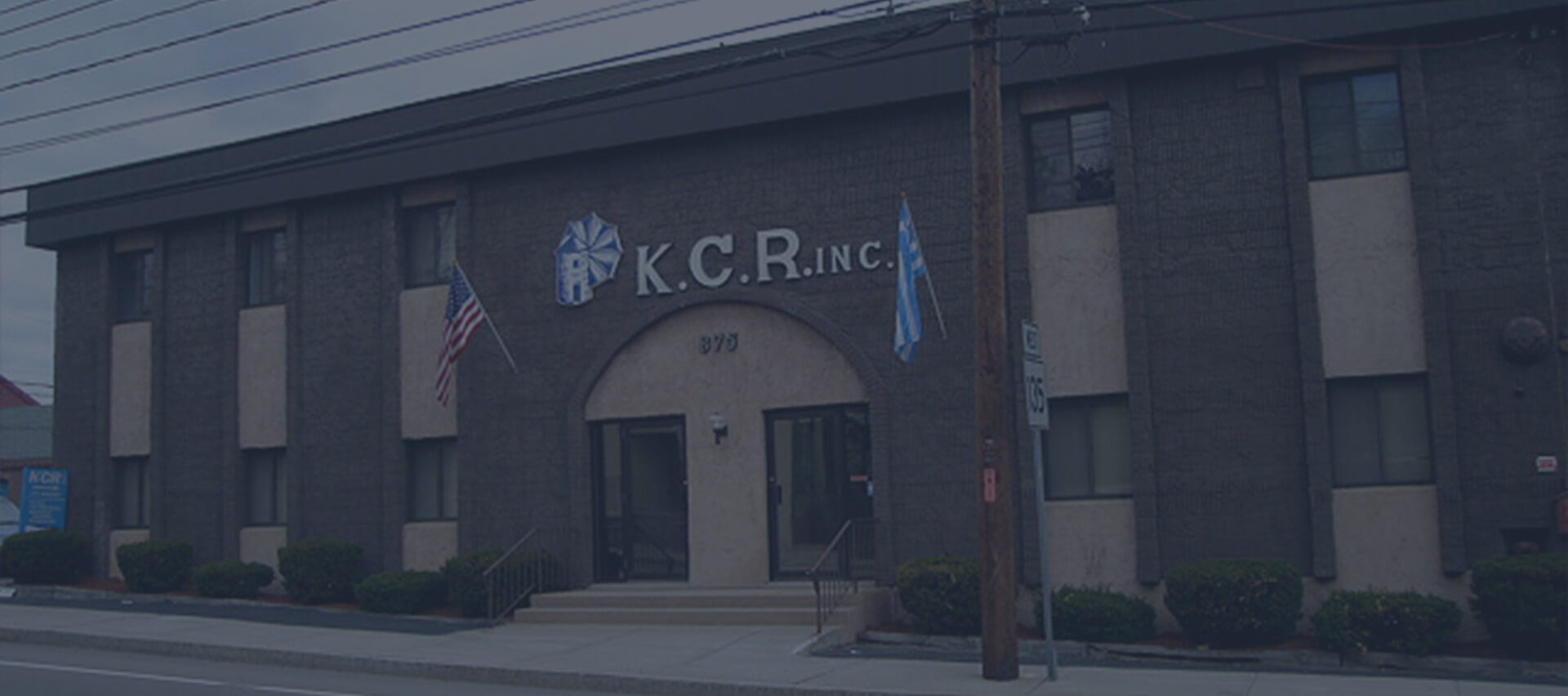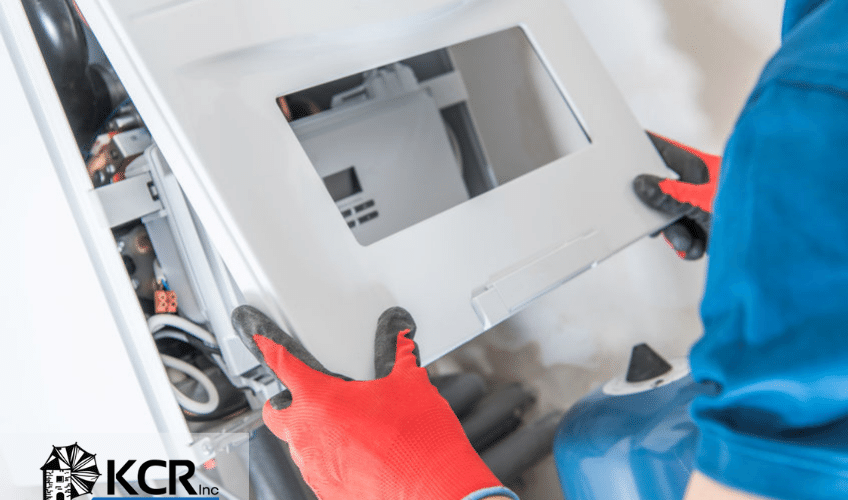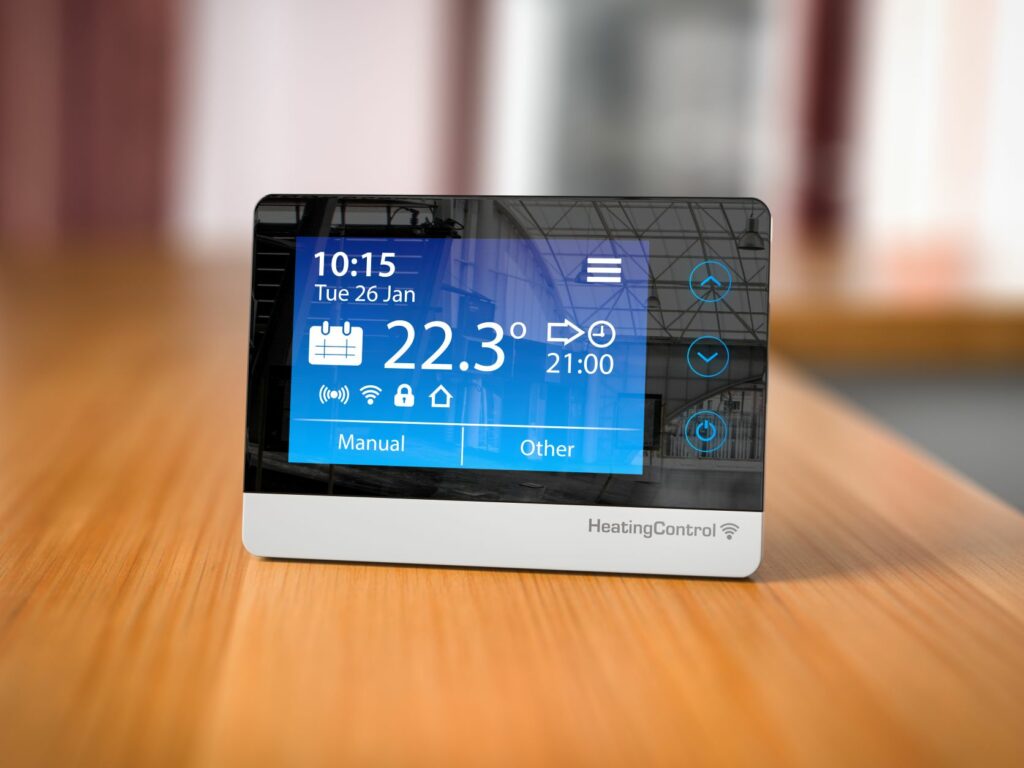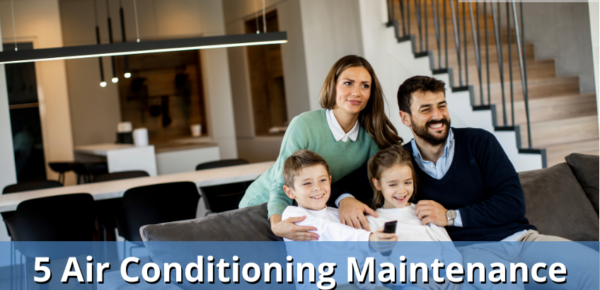When Should I Replace My Home Heating System?
Every home heating system has a lifespan within which it is most effective. Once this recommended lifetime expires, you may start experiencing some strange behavior.
The above is especially true for heating system repair. There comes a time when the wear and tear of constantly using a heating system become too much, and it becomes due for a change.
What We’ll Cover:
- When to replace your heating system
- The typical lifespan of a home heating system
- Factors that reduce your heating system’s lifespan
- Warning signs that you need HVAC maintenance
- The role of insulation and ventilation in heating
- What to do if you need a heating system repair
Is There a Perfect Time For Replacement?
Unfortunately, there’s no crystal ball to tell you when it’s the perfect time to replace your heating furnace. There are a lot of factors that affect the life expectancy of your home heating system. Regular, timely maintenance helps to keep your heating furnace in optimal shape. Undoubtedly, residential HVAC that are poorly maintained will often need more emergency heating repairs, and their life expectancy will be shorter.
You might be wondering what the typical life expectancy of a household HVAC is. Let’s find out!
Typical Home Heating System Repair Lifespan
Ideally, home heating systems can last between 10 and 20 years. But many systems never reach this life expectancy. The longevity of these industrial heating units depends on a few factors. Some notable factors include unit quality, frequency, the extent of usage, and maintenance schedule.
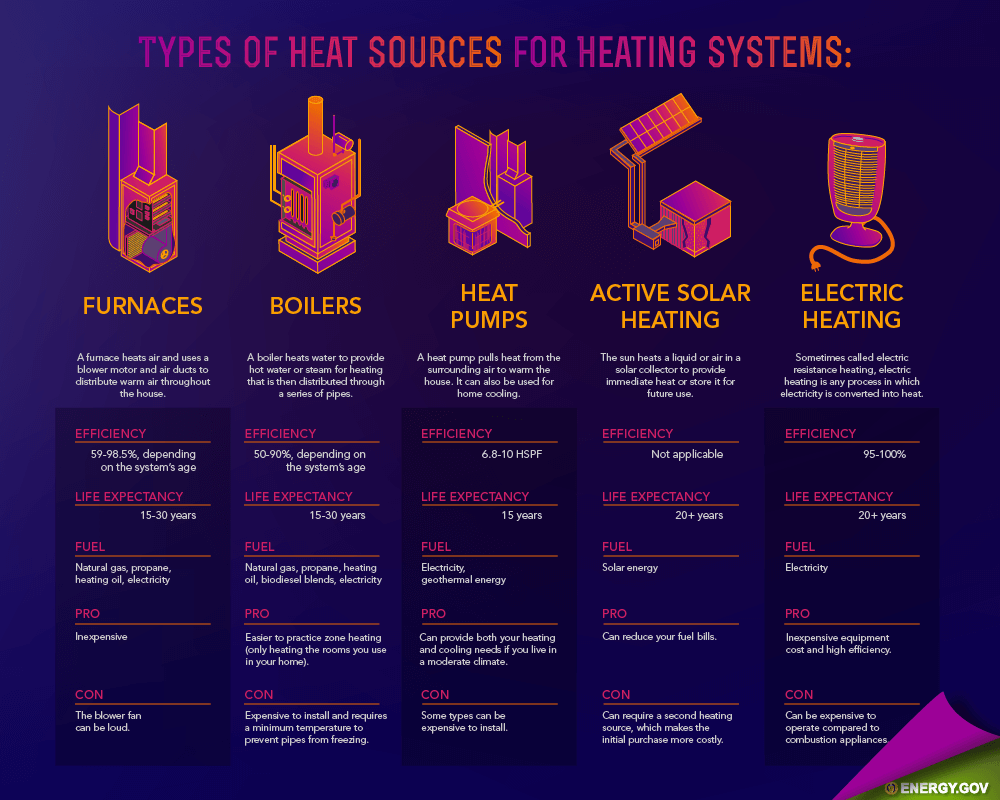
Factors That Affect The Lifespan of Your Home Heating System
Whether your residential heating system reaches the expected 10-20 years lifespan depends on several factors. However, poor maintenance culture is the most detrimental to your component’s lifespan. Because proper maintenance not only helps to prolong the lifespan of your clean heating systems, but quality maintenance service can also detect and correct the majority of the issues associated with the factors listed below:
Bad Installation
From the onset, low-quality installation, mismatched components, or a wrong unit specification are just a few installation issues that can cut years off the lifespan of the unit installed in your home. Before investing in a home heating system, please consult a qualified supplier and technician to ensure that your HVAC company does its due diligence.
Wrong Unit Size
Proper sizing is crucial to the effectiveness and efficiency of any heating system repair. The capacity of the unit installed must match the size of the living space that requires heating. So often, we see a unit installed in a room that is too big for its capacity. Too much workload eventually wears it down faster than expected. Then, the on-off cycle increases, which strains the clean heating unit. Check to see if a forced-air heating system would suit your home.
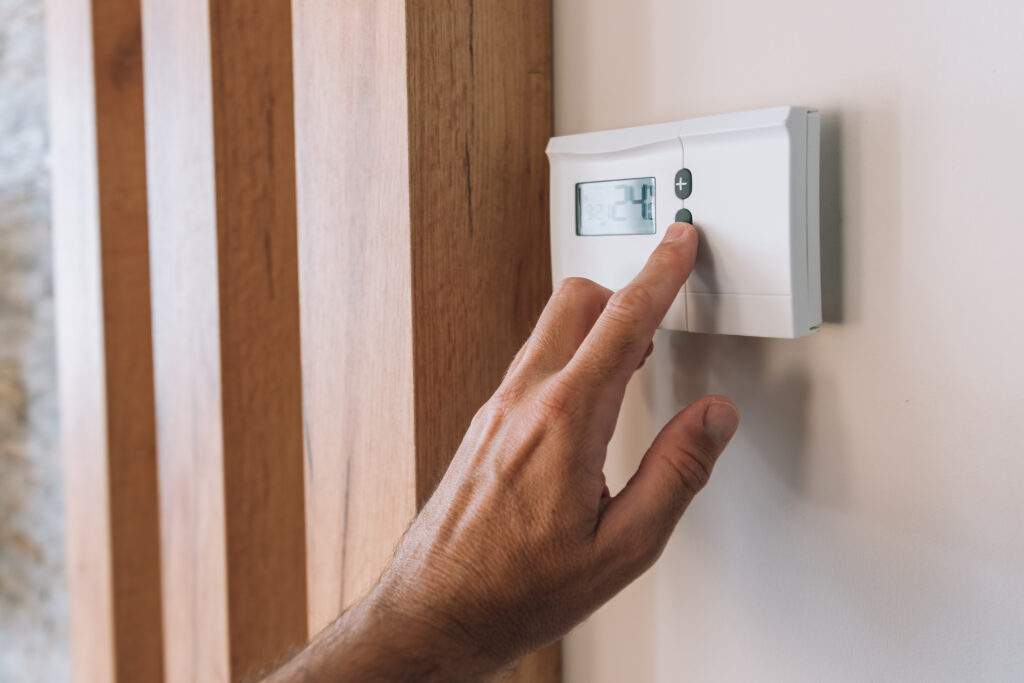
Filter Replacement
Filters help the heating furnace maintain healthy airflow, which nourishes the unit. When the airflow is constant and unblocked, the system works as intended. Filters are just one part you must change while using a heating system. Failure to do so subjects the unit to unnecessary stress that ultimately reduces its life expectancy.
Local Climate
The more on-time a unit undergoes, the more likely it will get stressed out quickly. A warm climate allows for less heating system usage and vice versa.
Usage Level
Colder regions typically see a heating system put to more use. High dependency on a heating unit naturally wears down the unit more quicker. Homeowners will have to draw up a very efficient and effective maintenance schedule to mitigate the ill effects of regular use.
Unit Quality
Typical of most technology, the quality of the heating unit also plays a significant role in the system’s durability. Quality here doesn’t necessarily have to do with how much the unit costs. Quality here involves the make, specification, configuration, and capacity.
Is your heater working at 100%?
Signs Your Heating Equipment Needs Maintenance
It’s important to pay attention to your heating system so you can properly respond to some warning signs that indicate it may need repairs or replacement, depending on the extent of the damage and the unit’s age.
Your Home Heating System Has Clocked 15-20 Years
It’s advisable to thoroughly inspect your heating system by an HVAC professional when it is about 15-20 years old to ensure it’s safe for operation. If your equipment gets close to that age, people say you should be on the lookout for a replacement. That’s correct, but you can still carry out heating repairs if you’re not ready to purchase a replacement or if the cost is not half the price of getting a similar replacement.
Your Energy Bills Are Increasing
A rising energy bill is a sign that many homeowners overlook. Naturally, heating systems lose their efficiency as they age, especially if they are not maintained properly.
Compare your previous energy bills with the current ones and see if you’re paying more recently. If that’s the case, consult with your HVAC technician to see if components like the filters or burners properly fit. Faulty ones may need replacing with new ones.
You’ve Had Multiple Repairs Within a Few Years
We recommend cleaning your heating unit for maintenance once every year. However, suppose you have had multiple emergency heating repairs in two years. In that case, you should seriously consider investing in a brand-new unit if your present system is close to its life expectancy.
You know your furnace needs replacing when it is increasingly difficult to get parts for repairs.
You Find It Difficult To Circulate Hot Air
Another sign that your heating equipment needs a technician’s attention is when your thermostat cannot evenly distribute the room temperature. Heating controls may become inefficient as the unit ages. In that case, it may be time to have a professional check-up on the heating controls.
Your Furnace Is Producing Carbon Monoxide
As you use your heating furnace, it becomes prone to develop cracks in the heating chambers. These cracks result in incomplete combustion in the heating exchanger, leading to the production of carbon monoxide.
You should take your heating system to a professional as soon as you detect carbon monoxide. Exposure to carbon monoxide can be very dangerous, so replacing the furnace may be your only viable solution.
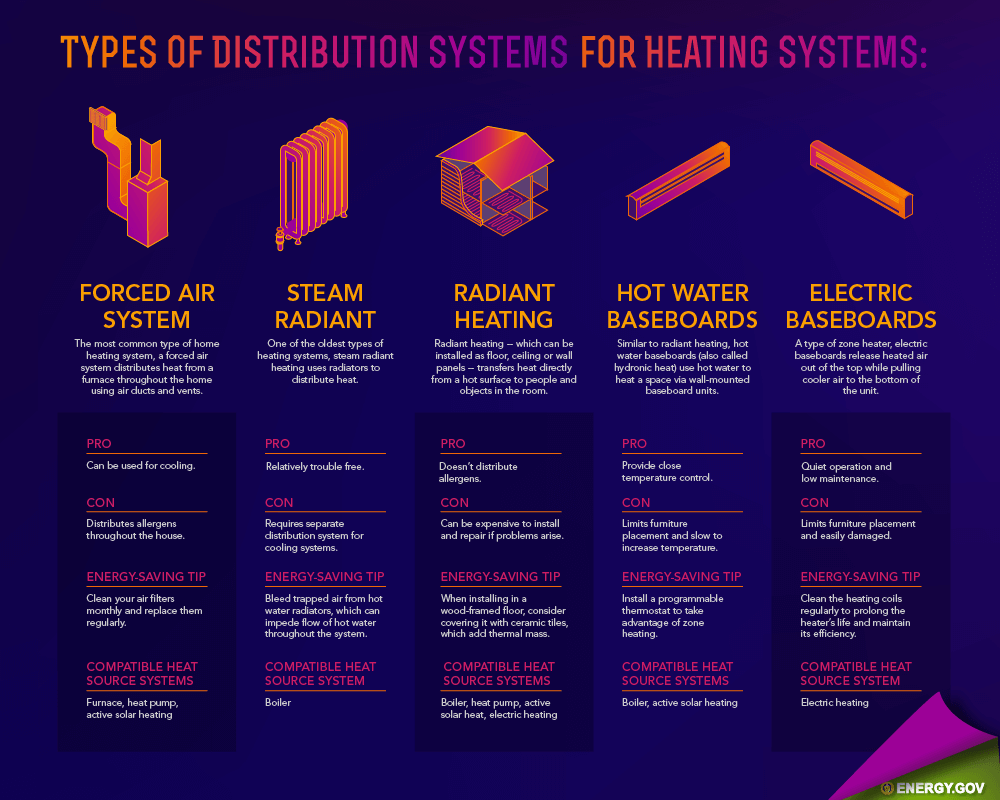
The Role of Insulation and Ventilation in Heating Efficiency
When considering the efficiency of a home or business heating system, two critical yet often overlooked factors come into play: insulation and ventilation. Both play pivotal roles in not only maintaining a comfortable indoor temperature but also in ensuring the heating system operates at peak efficiency.
Insulation: The Hidden Hero of Heating Efficiency
Insulation acts as a barrier, preventing heat loss in the winter and heat gain in the summer. Inadequate insulation, particularly in older homes and buildings, is a common cause of energy inefficiency. Heat naturally flows from warmer to cooler spaces. During winter months, without proper insulation, the warmth generated by your heating system can easily escape through walls, floors, and ceilings.
Upgrading insulation is, therefore, one of the most effective ways to enhance heating efficiency. This involves assessing current insulation levels in key areas such as the attic, walls, and basements. Materials like fiberglass, cellulose, or foam insulation can be used to bolster these areas, helping to retain heat more effectively. The result is a reduced workload on your heating system, as it doesn’t need to work as hard to maintain the desired indoor temperature, leading to lower energy bills and an extended lifespan of the heating system.
Ventilation: Balancing Air Quality and Heat Retention
While insulation is crucial for heat retention, adequate ventilation is essential for maintaining indoor air quality and preventing moisture problems. In the quest for energy efficiency, homes and buildings are often made airtight, which can inadvertently lead to stale air and moisture buildup. Proper ventilation systems are key to balancing this equation.
There are several ventilation strategies that can be employed:
- Natural Ventilation: This involves the use of operable windows and vents to control airflow in and out of the building. While it’s effective for air quality, it can be less efficient for heat retention.
- Spot Ventilation: This includes the use of exhaust fans in areas like kitchens and bathrooms to remove excess moisture and control odors.
- Whole-House Ventilation Systems: These systems provide controlled, consistent ventilation throughout the building. Types include exhaust, supply, balanced, and energy recovery ventilation systems. Energy recovery ventilators (ERVs) and heat recovery ventilators (HRVs) are particularly beneficial for heating efficiency. They recover heat from the outgoing air and transfer it to the incoming air, reducing the heating demand.
Combining Insulation and Ventilation for Optimal Efficiency
The best approach to heating efficiency is a balanced combination of both insulation and ventilation. Proper insulation reduces heat loss, while adequate ventilation ensures good air quality without compromising heat retention. During a heating system inspection or upgrade, it’s advisable to assess both these aspects.
Professionals can evaluate the current insulation and suggest improvements. They can also inspect the existing ventilation system to ensure it’s adequate and functioning correctly. By optimizing both insulation and ventilation, homeowners and business owners can achieve a comfortable, healthy indoor environment while maximizing the efficiency of their heating systems.
In conclusion, while the heating system itself is critical, the roles of insulation and ventilation are equally important in ensuring overall heating efficiency. Addressing these factors can lead to significant energy savings, enhanced comfort, and a more sustainable operation of your heating system.
Think You Need a New Home Heating System?
If you think you need a new furnace, don’t despair. Cleaning your heating unit for maintenance may help you save money in the long run. Even when you feel you’re not ready to fund a replacement, regular maintenance can help prolong the lifespan of your unit. And investing in repairs may make sense if the unit is not too close to its life expectancy date.
Available for 24/7 Emergency Heater Repair
THE HOME HEATING SYSTEM EXPERTS
Your HVAC solutions should work for your exact needs. For nearly 50 years, KCR has provided homes and businesses with peace of mind and temperature control. We’re proud to serve our customers efficiently and flexibly in residential and commercial heating repair.
You can also follow us on Facebook for exciting clean heating updates and promotions!


